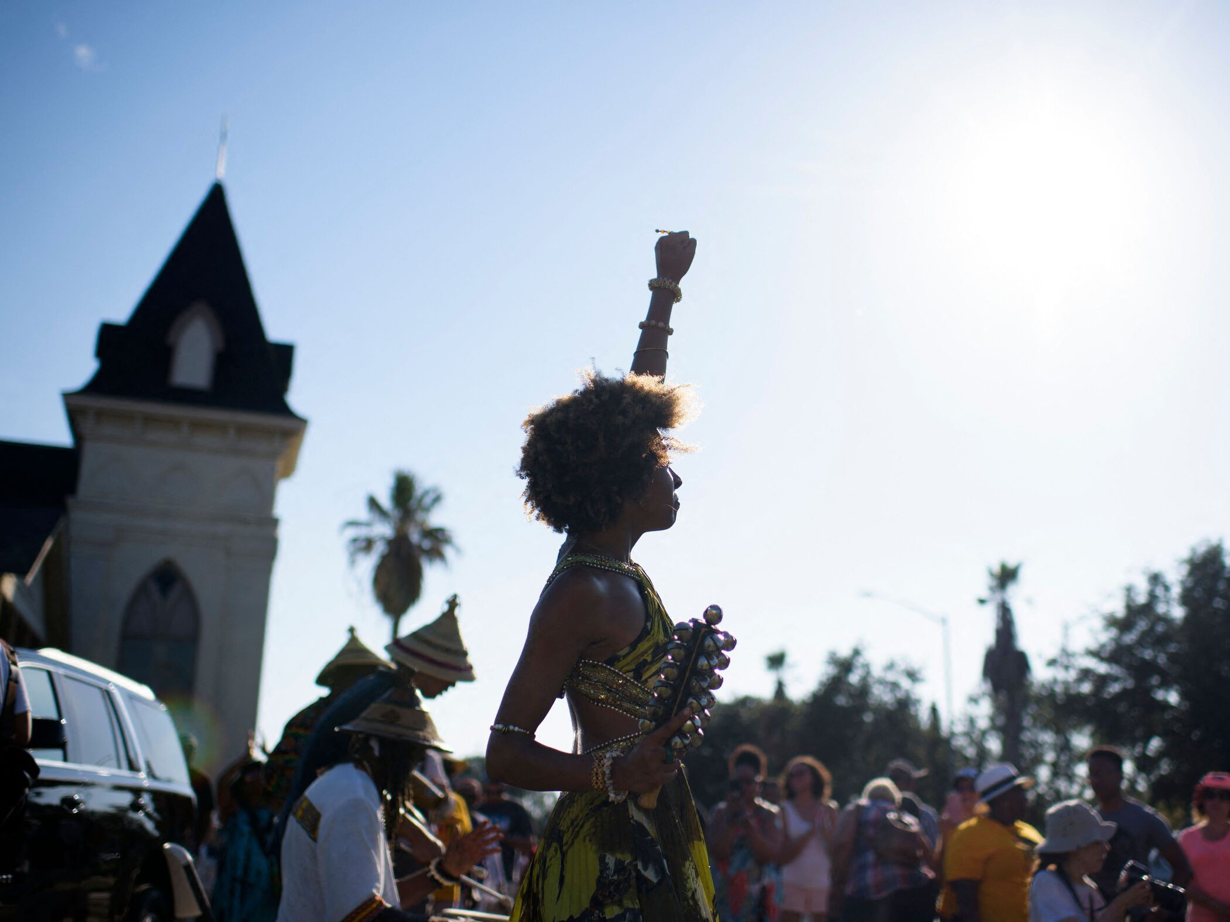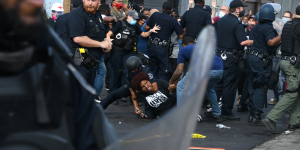When Juneteenth became a federal holiday last year, South Carolina organizer Jamal Bradley was excited for it to finally get the recognition it deserves. But his enthusiasm was quickly dashed when he learned state leaders decided not to follow suit in observing the holiday.
“It just lets me know there’s still work left to do in South Carolina,” said Bradley, who started a petition for Juneteenth to become a state holiday.
Also known as “Emancipation Day” or “Freedom Day,” Juneteenth commemorates June 19, 1865 when federal troops arrived in Galveston, Texas and gave word to enslaved African Americans that they were free — more than two years after the Emancipation Proclamation was signed. The holiday has been celebrated by many Black families for generations, but began to gain wider attention in 2020 after the murder of George Floyd and Breonna Taylor.
Despite the federal recognition, some Black organizers are beginning to see that local support can be a harder lift. While every state has at some point recognized Juneteenth as a day of observance, 26 states have yet to adopt Juneteenth as a paid public holiday, including seven former Confederate states, according to the Pew Research Center.
Reasons for the delay vary from state to state. In some places, it’s due to lagging bureaucracy. In other places, it’s due to disputes over when to actually celebrate the holiday.
Likewise, there’s a range of implications. On a practical level, the lack of a state holiday means local employees may not be able to take time off to observe Juneteenth. It may also mean state government buildings will remain open on the holiday. But to many Black activists, the extent to which Juneteenth is embraced by state governments speaks volumes about their progress toward racial justice.
“Our lawmakers are missing an opportunity to show that this state is ready to move forward,” Bradley said.
It could be years until every states adopt Juneteenth
Bradley believes it’s particularly important for former Confederate states to recognize Juneteenth. His home state, South Carolina, was the first state to secede from the Union. For South Carolina to officially recognize Juneteenth, Bradley says, it would be a milestone for both the state and the nation.
Earlier this year, state lawmakers proposed a bill offering a floating holiday for state employees to use on Juneteenth. That legislation was advanced by the Senate but has thus far failed to clear the House.
“It wouldn’t have fully reconciled what has taken place, but it would’ve been a good start,” said Bradley, who’s organized Juneteenth celebrations in the capital of Columbia for the past five years.
He’s hopeful that South Carolina will eventually adopt Juneteenth, but believes it may take years.
Some activists want Juneteenth to be equal to July 4th
Doris Moore Bailey from Lakeland, Fla., believes it’s time for Juneteenth to be treated like July Fourth.
Florida also has yet to designate Juneteenth as an official state holiday, in part because of a controversy over what day to commemorate: June 19 or on the day enslaved people in Florida learned they were emancipated. A Juneteenth state holiday bill died after some historians argued the state should honor Florida’s Emancipation Day instead. A Union general read the Emancipation Proclamation in Tallahassee on May 20, 1865.
“We have two Independence days, June 19 and Fourth of July, one freed the people and one freed the land,” said Bailey.
Since 1992, she and former state representative, Dr. Alzo Reddick, has worked to establish Juneteenth as an annual tradition in her city. Three decades ago, her event garnered less than 50 people. This year, over 300 residents attended.
Despite the growing popularity in Lakeland and across Florida, Bailey says she still struggles to receive support from city leaders. The city has publicly proclaimed June 19 as Juneteenth Day in Lakeland, but it has yet to be recognized as an official public holiday.
Mayor Bill Mutz said it wasn’t considered to be a public holiday because the city calendar is planned a year in advance, but that Juneteenth was “certainly something we can observe in the future.”
But Bailey believes there’s still work to be done for non-African American lawmakers to take Juneteenth more seriously and more quickly.
“It can still be divisive,” she says. “They’re not going to do a heavy lift to make it equal to July Forth. The challenge is, this is a marathon, not a sprint. That’s how I see the journey of Juneteenth.”
Establishing traditions for future Black generations
So far, Alabama has only adopted Juneteenth as a state holiday for this year, but whether that will be a permanent policy is ultimately to the state legislature. To Unique Morgan Dunston, a state-recognized Juneteenth is an opportunity to tell a more accurate, complete portrayal of American history.
Growing up in Marshall County, Ala., Dunston never learned about nor had the opportunity to celebrate Juneteenth. Yet, she was surrounded by Confederate holidays, statues and customs.
It wasn’t until 2020 that Dunston says she understood Juneteenth’s significance. Now, she’s been working to help raise awareness about the holiday and organize celebrations for her community.
Having Juneteenth recognized in all levels of government can be especially meaningful in places like Marshall County, Dunston says, where Black residents make up less than 3% of the population.
“It’s weird, Juneteenth feels new but we’re talking about something that happened in 1865,” Dunston said. “But I love that children will know what Juneteenth is and not have to learn about it as an adult like I had to.”
Copyright 2022 NPR. To see more, visit NPR.




